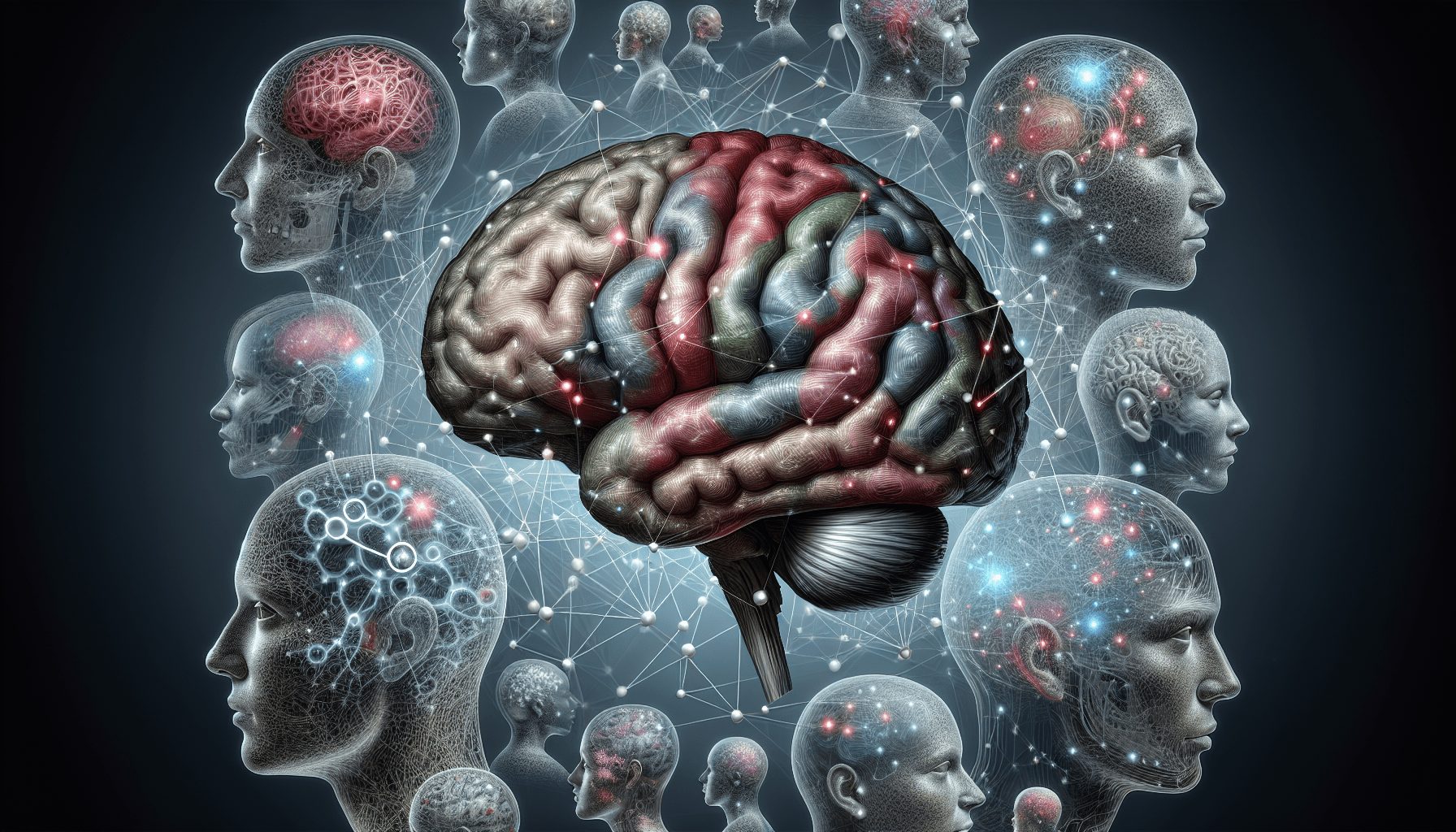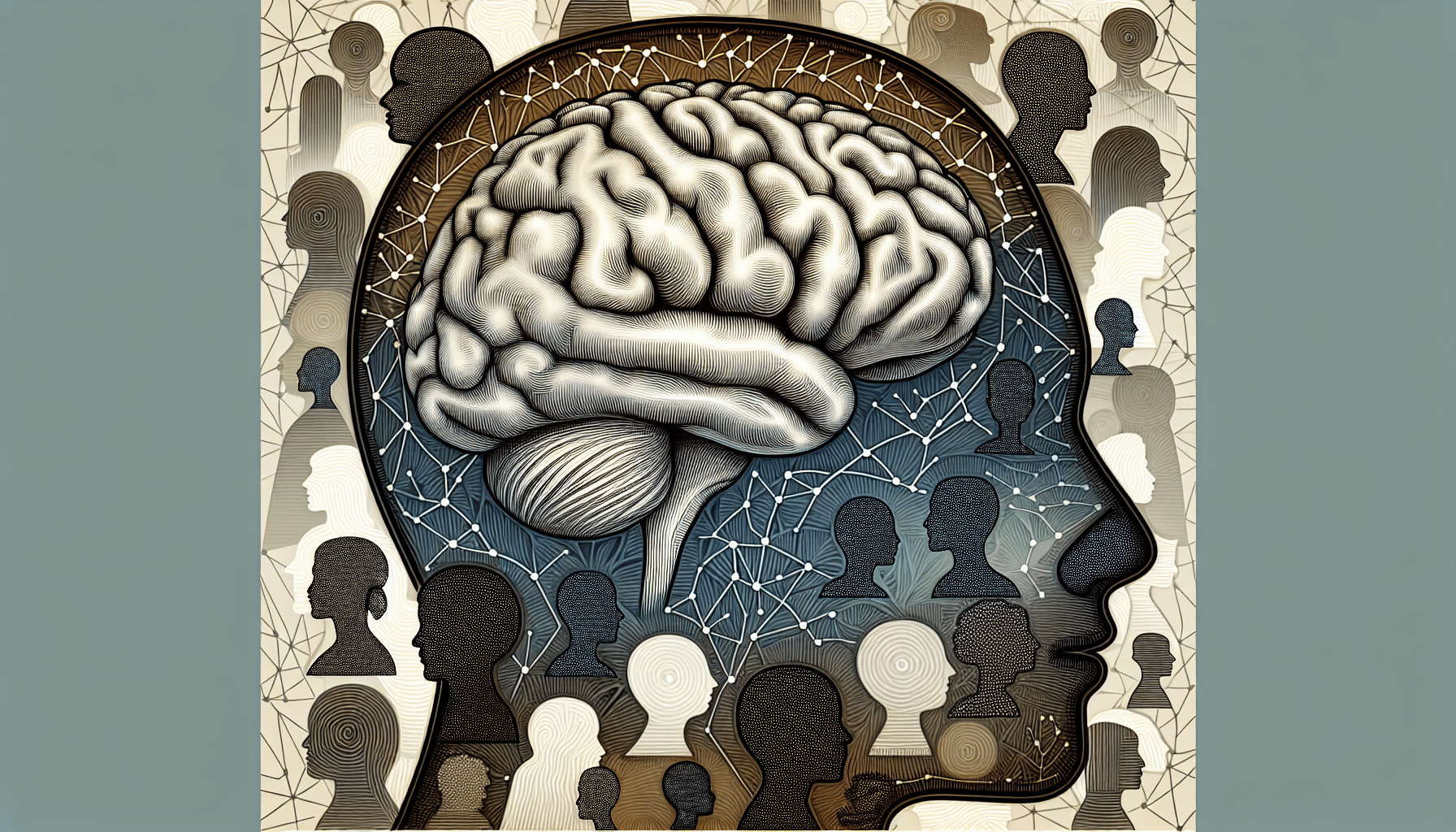Have you ever wondered how cognitive decline might affect one’s ability to navigate and resolve issues within social settings? Cognitive decline can significantly impact various facets of daily life, including problem-solving in social situations. Understanding this connection is essential for developing strategies to assist those experiencing cognitive challenges.

Understanding Cognitive Decline
Cognitive decline refers to the gradual loss of cognitive capacities, which can occur as part of the natural aging process or be exacerbated by conditions such as Alzheimer’s disease, strokes, or other neurological disorders. This decline can manifest as memory loss, difficulty in concentrating, or challenges in performing everyday tasks.
Types of Cognitive Decline
There are various types of cognitive decline, with each affecting the brain differently:
- Mild Cognitive Impairment (MCI): This stage involves noticeable changes in cognition that, while greater than expected for age, do not interfere significantly with daily life.
- Dementia: A more severe form where cognitive decline interferes with daily functioning, often including memory loss, language difficulties, and impaired problem-solving.
- Alzheimer’s Disease: A specific form of dementia that affects memory, thinking, and behavior.
Problem-Solving in Social Situations
Now that we understand the types of cognitive decline, let's dive into the specific context of problem-solving within social situations. Such scenarios often require quick thinking, empathy, and effective communication. Problem-solving in social contexts involves identifying the issue, understanding the perspectives involved, generating potential solutions, and implementing the best course of action. Cognitive decline can interfere with each of these steps.
The Problem-Solving Process
Here is a breakdown of how this process typically occurs:
| Step | Description |
|---|---|
| Identify the Issue | Recognizing that a problem exists and requires action |
| Understand Perspectives | Considering the viewpoints and needs of others involved |
| Generate Solutions | Brainstorming possible ways to address the issue |
| Implement Solutions | Putting the chosen solution into practice effectively |
Cognitive decline can impede each step by affecting memory, processing speed, and reasoning abilities.
Impact of Cognitive Decline on Identifying Issues
Recognizing a problem is the first step in effective problem-solving. Cognitive decline can affect this ability by dulling one’s awareness of social cues or diminishing the capacity to remember key pieces of information that signal there is an issue.
Social Cues and Awareness
Understanding and reacting to social cues — such as body language, tone of voice, and facial expressions — is crucial in identifying social problems. Cognitive decline can make it difficult to interpret these cues correctly, leading to a diminished ability to recognize when something is amiss.
Memory and Attention
Short-term memory is often one of the first aspects affected by cognitive decline. This impairment can lead to forgetting recent interactions or important details that would otherwise signal a problem. Additionally, changes in attention span may result in difficulties focusing on conversations or recognizing subtle social hints.
Understanding Perspectives: Empathy and Theory of Mind
Empathy and perspective-taking, key to understanding other viewpoints, can be notably affected by cognitive decline.
Empathy
Empathy involves the ability to feel and understand others' emotions. As cognitive decline progresses, it can lead to reduced emotional sensitivity and a decreased ability to empathize with others, making it harder to appreciate their needs and concerns during a social dilemma.
Theory of Mind
Theory of Mind refers to the capability to attribute mental states — beliefs, intents, desires — to oneself and others. Cognitive decline, especially in conditions like Alzheimer’s, directly impairs this ability, thereby hindering effective problem-solving in social contexts.
Generating Solutions and Cognitive Decline
Brainstorming potential solutions demands creativity, flexibility in thinking, and the ability to foresee the consequences of different actions. Cognitive impairment can restrict these abilities, leading to fewer potential solutions or inappropriate ones that do not adequately address the social problem.
Cognitive Flexibility
Cognitive flexibility, the ability to switch between thoughts and adapt behavior according to the situation, is often compromised in cognitive decline. This inflexibility can cause repetitive thoughts or actions, limiting the capacity to think outside the box and find innovative solutions.
Predicting Outcomes
Effective problem-solving involves not only generating solutions but also anticipating the potential outcomes of those solutions. Cognitive decline can impair one's ability to predict how others might react to different courses of action, leading to less effective problem resolution.
Implementing Solutions Effectively
Even with a potential solution at hand, cognitive decline can pose challenges in actually putting it into practice. This step requires not only memory and concentration but also the capacity for follow-through and consistency.
Memory and Follow-Through
Implementing a solution effectively often requires remembering all steps correctly and following up on them sequentially. Cognitive decline can interfere with this process, leading to mistakes, incomplete actions, or forgetting the steps altogether.
Consistency and Cognitive Load
Carrying out a solution also demands maintaining consistency over time. Cognitive decline generally affects this consistency due to increased cognitive load, making it difficult to keep actions consistent over time and thus compromising the efficacy of the chosen solution.

Emotional and Psychological Impact
Aside from the direct cognitive challenges, the emotional and psychological aspects of cognitive decline also influence social problem-solving. Frustration, anxiety, and reduced self-confidence can further impede one's ability to handle social conflicts effectively.
Anxiety and Frustration
Frequently, individuals experiencing cognitive decline become frustrated or anxious about their diminishing abilities. This emotional turmoil can further reduce their capacity for effective social interaction and problem-solving.
Self-Confidence
As cognitive decline progresses, it often leads to reduced self-confidence. This lack of confidence can cause hesitation or reluctance to engage in problem-solving tasks, exacerbating social issues.
Support Strategies for Cognitive Decline
Successfully mitigating the impact of cognitive decline on social problem-solving requires a multifaceted approach. Support mechanisms can be put in place to help those experiencing cognitive decline navigate social situations more effectively.
Communication Strategies
Clear and straightforward communication can alleviate some of the challenges associated with cognitive decline:
- Simplified Language: Using simple, direct language helps in reducing misunderstandings.
- Repetition: Repeating important information ensures better retention.
- Visual Aids: Employing visual cues or written notes can support memory and comprehension.
Environment Modifications
Creating an environment that supports cognitive function can make a meaningful difference:
- Routine: Establishing and maintaining regular routines minimizes cognitive load.
- Markers and Labels: Using visual markers and labels can assist in navigating tasks and spaces.
- Quiet Spaces: Reducing distracting stimuli helps maintain focus and clarity during social interactions.
Emotional Support
Providing emotional support remains crucial in managing the psychological aspects of cognitive decline:
- Encouragement: Positive reinforcement boosts self-esteem and confidence.
- Counseling: Access to professional counseling can help in addressing anxiety, frustration, and other emotional challenges.
- Social Networks: Maintaining and fostering social networks aids in emotional resilience and provides necessary social engagement.
Cognitive Training and Activities
Engaging in cognitive training and activities can help sustain cognitive abilities:
- Brain Games: Puzzles and brain games promote cognitive activity.
- Social Interaction: Encouraging social activities that challenge cognitive skills supports overall brain health.
- Physical Exercise: Regular physical activity is linked to better cognitive function and mental health.

Professional Interventions
Professional interventions provide specialized support for individuals experiencing cognitive decline:
Cognitive Therapists
Cognitive therapists specifically trained in working with dementia and MCI can design personalized strategies to enhance cognitive function and social problem-solving capabilities.
Medical Treatment
Medication and medical treatment can slow the progression of conditions like Alzheimer’s, subsequently aiding in maintaining cognitive functions longer and improving quality of life.
Social Workers and Support Groups
Social workers and support groups offer essential resources and a sense of community, which play pivotal roles in supporting both the individual and their family.
Conclusion
Cognitive decline undeniably affects the ability to problem-solve in social situations. However, understanding the various ways it impacts social interactions allows for the development of targeted strategies to mitigate these challenges. From improving communication techniques to professional cognitive training, numerous approaches can help maintain and enhance problem-solving skills in social contexts. By combining practical support with emotional and professional resources, individuals experiencing cognitive decline can continue to navigate their social worlds more effectively and with greater confidence.
By remaining aware of and responsive to these needs, you can better support those facing cognitive challenges, ensuring they feel valued and understood while empowering them to interact more effectively within their social environments.


